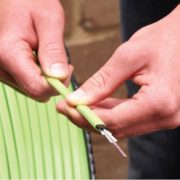Workers in the home – are you covered?
Injuries to household and domestic workers: Are you covered?
Queensland Home and Contents insurance policies exclude injuries to Domestic Workers such as domestic cleaners, babysitters, nannies, gardeners and in-home carers, or in situations where a WorkCover Policy of insurance might respond. By legislation, WorkCover Queensland Household Worker Insurance Policy will protect home owners against these types of risks. The cost for a 2 year policy is only $50 and is a simple online application. Click here to view the application.
Home based businesses
It should be noted that a WorkCover Household Worker Policy will not cover workers, including family members engaged in connection with a business operating from home, such as a home photography studio, home hairdressing business, office or operating a sharing economy like AirBnB. WorkCover Queensland advises that it is mandatory for Home Business owners to take out a WorkCover Accident Insurance Policy with WorkCover Queensland, to cover accidents or injuries to workers employed in their home operated business.
WorkCover Queensland advises that uninsured employers who lodge WorkCover claims are held to account and subject to significant financial penalties, including the cost of WorkCover claims lodged by their employees. Click here to view the WorkCover Accident Policy application.
The penalties can amount to hundreds of thousands of dollars for severe injuries, if you do not have the adequate types of cover for either the Household Worker Insurance policy or the Accident Insurance policy. Likewise, General Insurance products for Home Based Businesses requires totally separate consideration.
Some Home and Contents policies may not be suitable if you have a home business. It is recommended that you contact us to tailor a suitable insurance program for your business needs.







